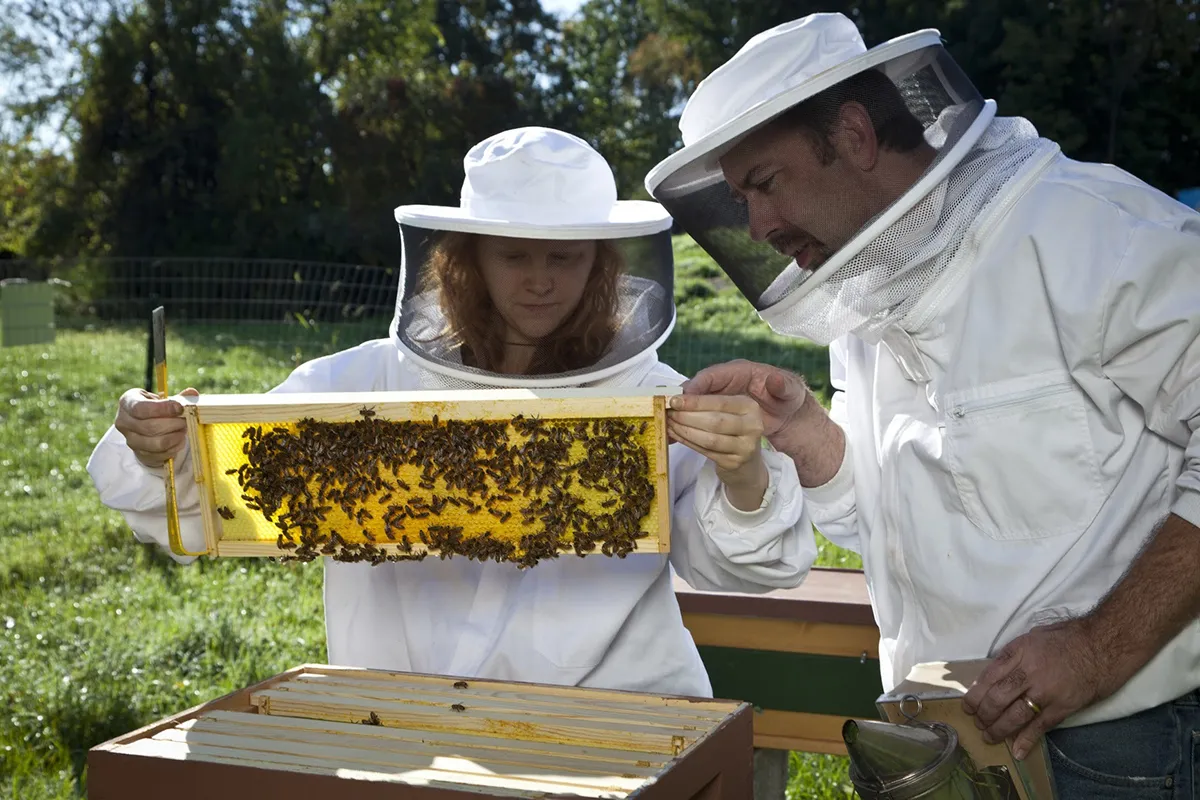Jason Hamilton, professor of environmental studies and sciences in the School of Humanities and Sciences, has been celebrating the honey bee at Ithaca College since 2010, when he was approached by Hannah Whitehead ’12, about starting an apiary on campus. But Hamilton’s particularly abuzz with excitement on the third Saturday of each August, which is World Honey Bee Day.
Hamilton currently serves as the manager of the facility, which officially began in 2011.
Taking care of bees is a very seasonal process. The needs of the apiaries shift depending on where they are in their life cycle. In the winter, while the bees are dormant, beekeepers are regulating possible issues, securing the bees’ food storage and creating more space for colonies. The spring and summers are spent actively supporting the bees and extracting honey from the hives.
